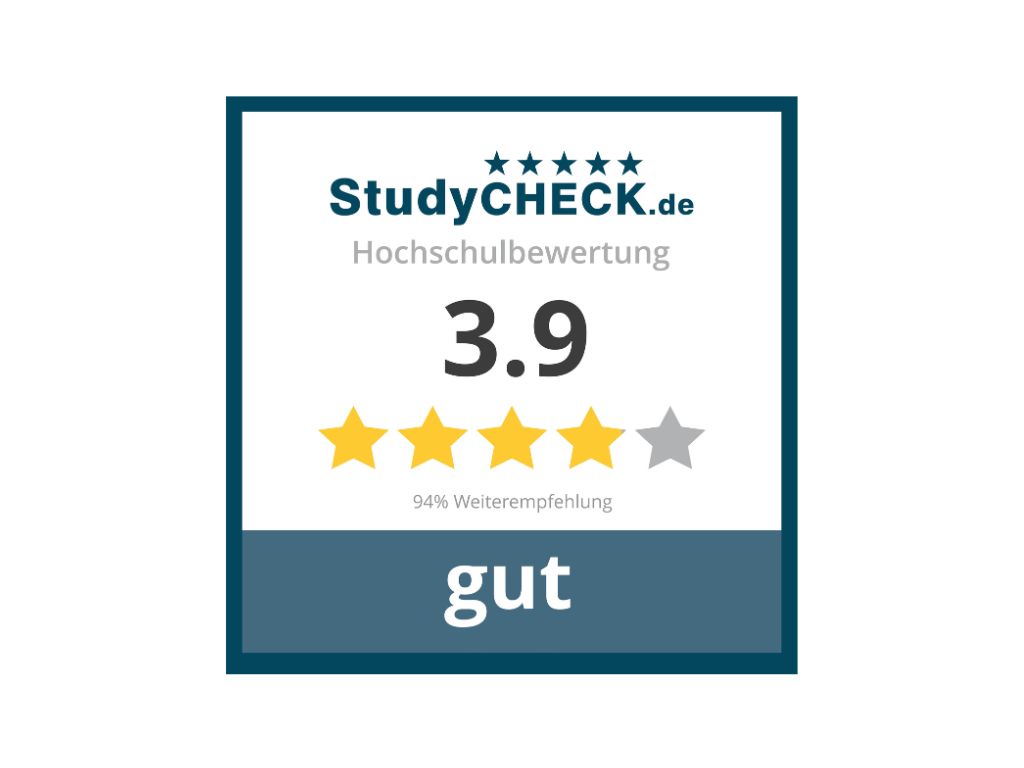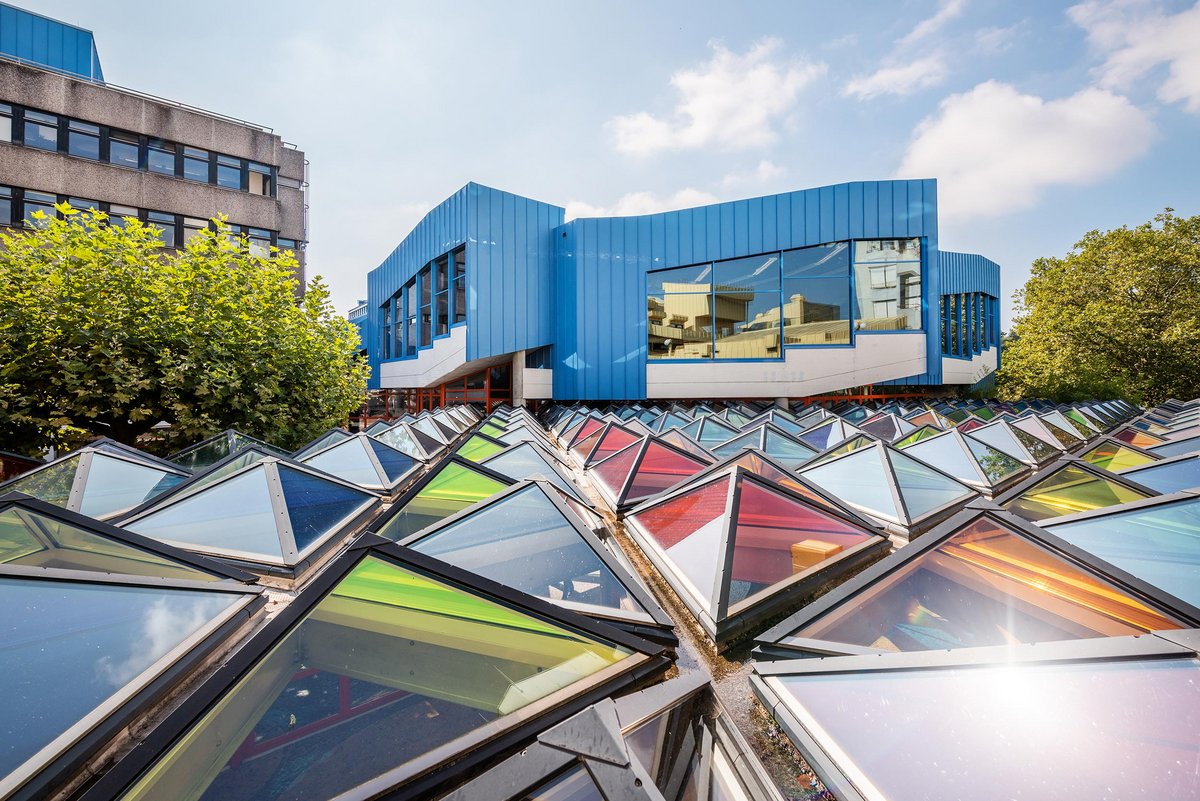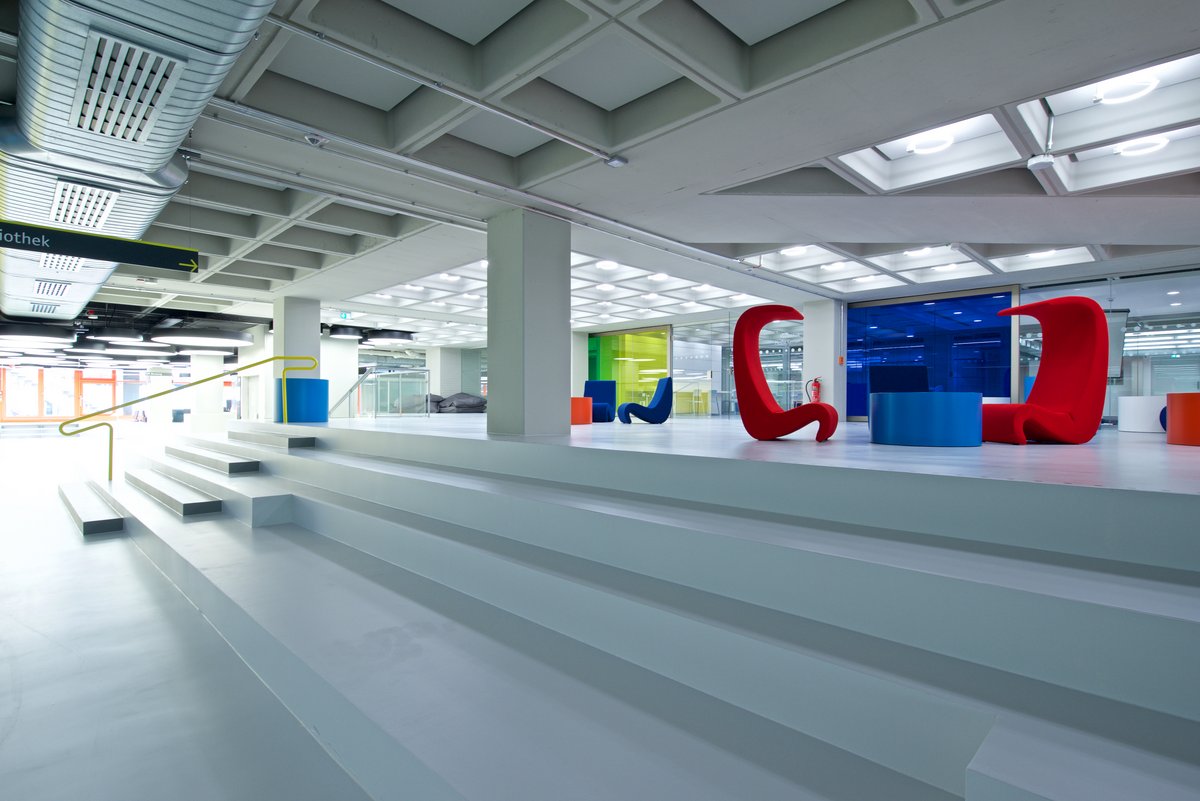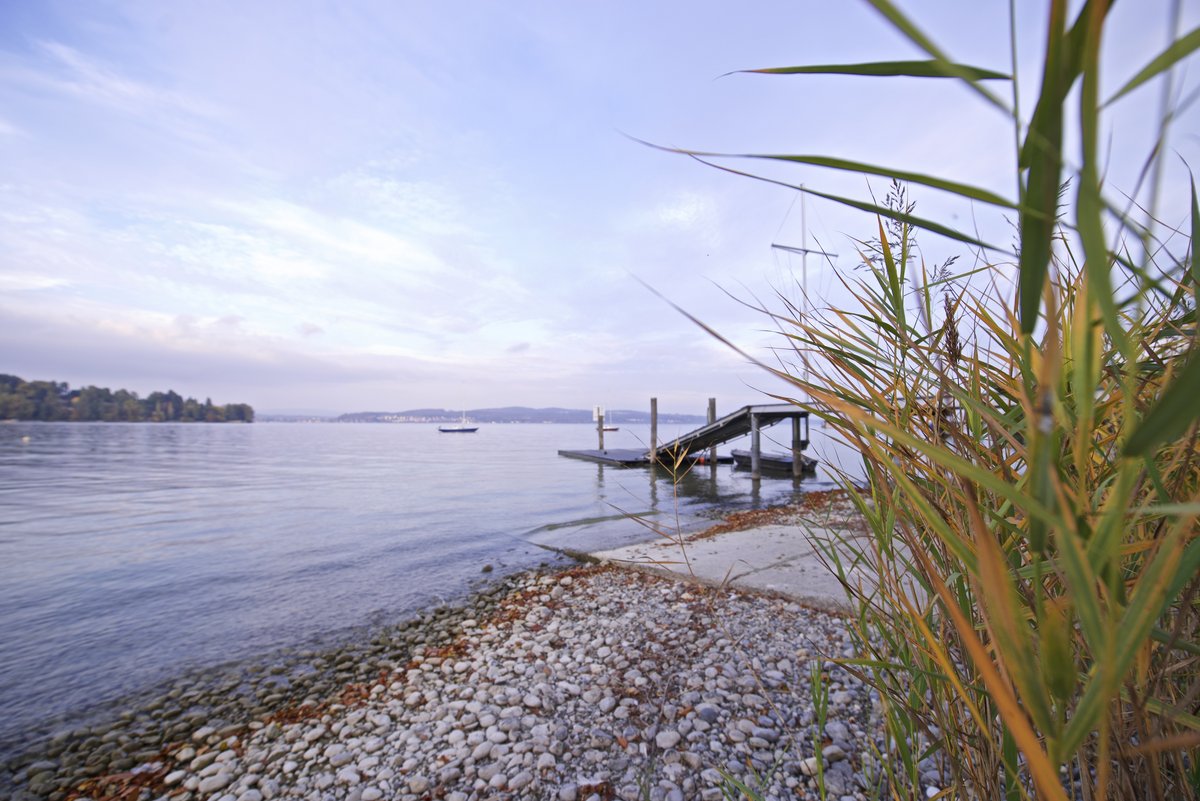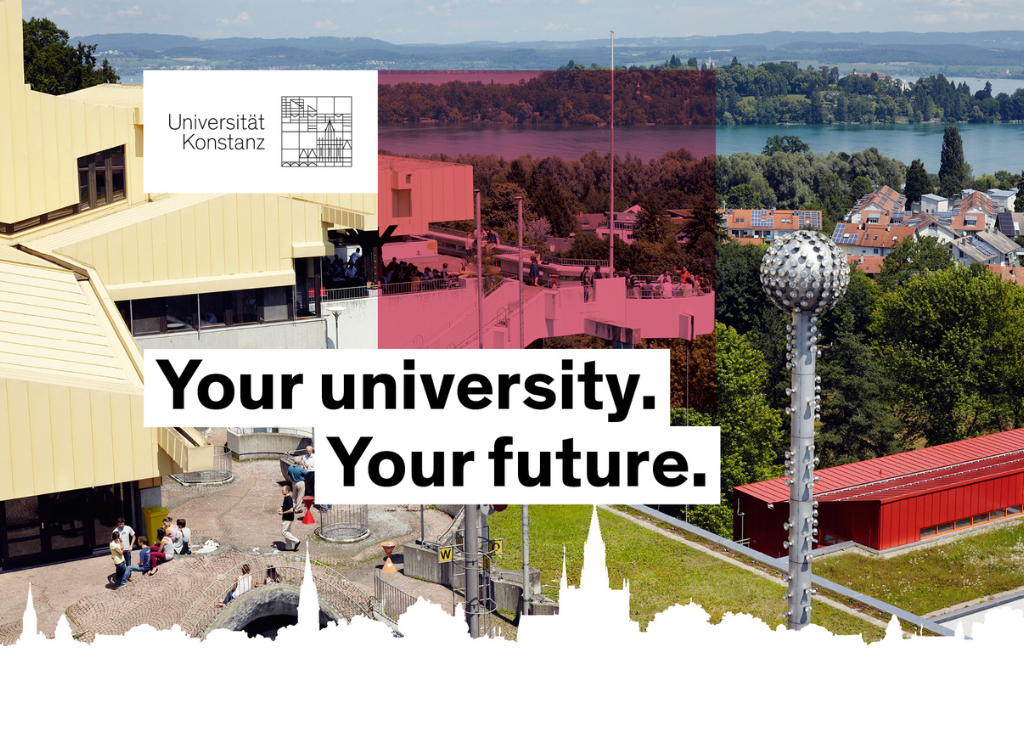
Mediterranean History – Master of Arts
Explore the liquid continent! As a contact zone between Africa, Asia and Europe, the Mediterranean region was a laboratory of globalisation in which boundaries of trade, empires and settlement, religion, language and culture were constantly shifting. Today, the region is in the focus due to various crises and conflicts: war, migration and climate change. At the same time, it remains a popular holiday destination and is also considered a role model in terms of nutrition. Many of these phenomena - from eating and travelling to violence, flight and displacement - reach far back into the past and can therefore only be understood from a long-term perspective. The Middle East conflict, for example, does not only result from the transformation of Palestine in the 20th century, but also from the fact that Jerusalem is 'holy' to all three monotheistic religions. The phenomenon of tourism also originated in this region and can be traced back as a form of mobility to the early modern Grand Tour and the pilgrimages of the Middle Ages. At the same time, the Mediterranean region has been a hot spot and crucial subject of innovative historiography and cultural theory: from environmental history and post-colonialism to global history and ocean studies.
Against this background, the unique MA study program examines trans-Mediterranean dynamics and entanglements over a period of 3,000 years: from antiquity to the 21st century. It provides bachelor graduates in history and cultural studies with a cross-period knowledge of the history, cultures and languages of Mediterranean societies, which is equally important for academic careers and non-academic professions. You will acquire practical skills and regional expertise about a key region of the world, which are urgently needed not only in academia, but also by institutions, organisations and companies that are active in the Mediterranean and cooperate with partners in the region. In addition, it deepens knowledge about the countries of origin of Mediterranean immigrants and thus creates a basis for social cohesion: by understanding the Mediterranean region better, we also understand today's Europe better!
Why study Mediterranean History in Konstanz?
- Expertise: The Konstanz Mediterranean Platform is a global centre for Mediterranean studies. The Department of History covers all periods of Mediterranean history (antiquity, the Middle Ages, early modern times, the long 19th century, contemporary history). This ensures a study programme that is unique in its depth and diversity.
- Networking: Konstanz is connected to excellent universities and research institutions in the Mediterranean region, where you can study Mediterranean languages and cultures as part of your Master's studies and conduct original archive and library research: Bologna, Florence and Haifa, Istanbul, Cairo and Lesbos, Montpellier, Padua and Rijeka, Rome, Sofia and Cyprus. The international contacts and intercultural experience gathered here are equally valuable for careers inside and outside academia.
- Mentoring: During your studies, you will receive individual mentoring not only in Konstanz, but also at your destination abroad (host university or employer) and competent advice on all important decisions (epochal focus and research topic, semester abroad or internship).
- Orientation: International students can participate in a four-week orientation program at the International Office of the University of Konstanz before the start of their studies, which not only includes an intensive German language course, but also practical help with arriving.
- Culture: As the heart of the Lake Constance (Bodensee) region, Konstanz is a melting pot of diverse cultural influences from south-west Germany, Austria and Switzerland - explore the rich offerings of a lively city!
- Nature: Konstanz's geographical location is extremely attractive: the Alps, Lake Constance and the Rhine offer plenty of opportunities for exploring nature, leisure activities, sport and relaxation.
Study content
Prospects
Career prospects
The MA Mediterranean History prepares you optimally for professional life. Firstly, it enables you to understand temporally distant and culturally foreign worlds: Empathy and exegesis as well as the ability to conduct independent research in unfamiliar surroundings are key qualifications for a wide range of professional fields. Secondly, you will deepen and practise your oral and written foreign language skills: in English-language courses, in discussions with foreign students and during your semester or internship abroad. This practice of multilingualism opens up a wide range of options for you on the German and international labour market. Thirdly, the international contacts and networks of Constance History will pave the way for you into attractive professional fields at home and abroad:
- Intercultural Dialogue and Academic Exchange
- Policy Advice and Knowledge Transfer
- Peace Policy, Development Cooperation, Humanitarian Aid
- Cultural management and museums
- Journalism
- Marketing for tourism and food
PhD
Due to its strong research focus, the Master's degree programme offers you the ideal preparation for PhD in history (Dr. phil.). You will be introduced to academic career paths and national and international instruments of doctoral funding right at the beginning of the program. Both in Konstanz and during your semester abroad, you will benefit from personalised supervision that will help you develop and sharpen your research interests and establish international contacts. You benefit from our close links with leading German and international research institutions such as the institutes of the Max Weber Foundation (the Orient Institutes in Beirut and Istanbul, the German Historical Institutes in Rome and Paris) and the European University Institute (EUI) in Florence, the German Study Centre in Venice (DSZV), the Maison méditerranéenne des sciences de l'homme (MMSH) in Aix-en-Provence and the Haifa Center for Mediterranean History (CMH). Some of these institutions offer internships and summer schools, all provide assistance in the development of doctoral projects and finance these through scholarships. Establishing contacts with these institutions early on in the Master's programme is therefore an excellent starting point for a successful academic career afterwards.
Study structure
Start of study
Winter semester
Study structure
The following illustration is an example of how students might structure the programme. The programme structure provides an overview of the ECTS credits for each semester.
These documents will support you in planning your studies:
Opportunities for additional training
At the University of Konstanz, you have a broad range of opportunities and training options that complement your study programme, for example orientation programmes to support new students, learning guidance, language courses, a data and information literacy programme as well as options promoting career-oriented skills and social commitment.
Skills for successful studies- GoMINt – orientation programme in STEM subjects
- Writing Centre – writing tutoring, joint writing sessions and workshops
- Language courses at the Language Institute
- Learning guidance, study tips, time management – workshops offered by the Central Student Advisory Service (ZSB)
- Advanced Data and Information Literacy Track (ADILT) – programme can be completed with a certificate
- Transfer – practical projects (research, business, politics and society)
- qualification N – Sustainability Certificate at the University of Konstanz
- Profil+ – programme for career skills (German skills required)
- Career Passport – programme for career skills (for international students)
- Advice on career entry, opportunities and workshops from Career Service
Internships and stays abroad
Internship
As an alternative to the semester abroad, you can complete an internship (duration: at least 5 months). The Departmental Internship Office maintains contacts with renowned national and international organisations in the university and non-university sector and supports you in searching and finding a suitable internship in Germany or abroad.
Stay abroad
You can spend your semester abroad with an ERASMUS+ partner of the University of Konstanz. The International Exchange Student Advisor and your Konstanz mentor will advise you on your choice of place of study and on establishing contact with the partner university. On site, you will be supervised by local researchers who will support you in researching sources for your master’s thesis.
Study requirements
Admission requirements for studying
- Bachelor's degree in a subject relevant for the Master's Programme, e.g. History majors, Arabic Studies, Archaeology Islamic Studies, Romance Studies, Ottoman Studies, Mediterranean Regional Studies (e.g. Mediterranean Studies or Middle Eastern Studies), Literature and Media Studies, Ethnology and Sociology, Political Science or a comparable programme (grade 2.5 "good" in the German grading system or better)
- Adequate English language skills (active and passive) of at least level B2 of the Common European Framework of Reference for Languages proved by one of the following language tests (or equivalent):
- Five years of continuous English lessons in secondary education with a minimum grade of 9 points or "befriedigend" (satisfactory) or better (usually certified by the higher education entrance qualification)
- Successful completion of four or more courses taught in English in a previous study programme Cambridge First Certificate in English (FCE), at least grade C
- IELTS test result (International English Language Testing System), score 5.5 or better
- TOEFL test result (Test of English as a Foreign Language) of at least 87 points (internet-based), 227 points (computer-based) or 567 points (paper-based).
In justified exceptional cases, knowledge of English can be demonstrated in an interview. The selection committee decides on exceptional cases. The proof of the language test must not be older than three years at the time of application.
Exempt from proof of English language proficiency are applicants with proven secondary school degrees, bachelor's degrees, or at least one semester abroad at English-speaking educational institutions from the following countries: Australia, Canada, Ireland, Malta, New Zealand, Singapore, South Africa, United Kingdom, United States.
NOTE: German language skills do not need to be demonstrated for the Master's program.
Further information can be found in the admission regulations.
Fees
Semester fee
All students enrolled at the University of Konstanz are charged a semester fee each semester, similar to all other German universities. Here you can find the current semester fee and its individual components.
Tuition fees for first degree studies for certain international students
Since winter semester 2017/18, the state of Baden-Württemberg has required some international students to pay tuition fees for their first degree studies. The following students are not required to pay tuition fees: citizens of a country within the European Union (EU) or the European Economic Area (EEA), doctoral students and certain “Bildungsinländer” (e.g. non-EU citizens with a German “Abitur”). More detailed information can be found here.
Each year, the University of Konstanz grants exemptions to a limited number of particularly gifted international degree-seeking students in accordance with the university’s “Begabtenbefreiungssatzung” (statutes governing the exemption of gifted students). More detailed information can be found here.
Tuition fees for second degree studies for all students
All students are required to pay tuition fees for their second degree studies. More detailed information can be found here.
Required language skills
- Adequate English language skills (active and passive) of at least level B2 of the Common European Framework of Reference for Languages proved by one of the following language tests (or equivalent):
- Five years of continuous English lessons in secondary education with a minimum grade of 9 points or "befriedigend" (satisfactory) or better (usually certified by the higher education entrance qualification)
- Successful completion of four or more courses taught in English in a previous study programme Cambridge First Certificate in English (FCE), at least grade C
- IELTS test result (International English Language Testing System), score 5.5 or better
- TOEFL test result (Test of English as a Foreign Language) of at least 87 points (internet-based), 227 points (computer-based) or 567 points (paper-based).
In justified exceptional cases, knowledge of English can be demonstrated in an interview. The selection committee decides on exceptional cases. The proof of the language test must not be older than three years at the time of application.
Exempt from proof of English language proficiency are applicants with proven secondary school degrees, bachelor's degrees, or at least one semester abroad at English-speaking educational institutions from the following countries: Australia, Canada, Ireland, Malta, New Zealand, Singapore, South Africa, United Kingdom, United States.
NOTE: German language skills do not need to be demonstrated for the Master's program.
Teaching and examination language
The language of instruction is English.
Interests and skills
The MA program is aimed at BA graduates in history and cultural studies who are interested in deepening their regional, foreign language and intercultural skills as well as gaining a deeper historical understanding of current problems. You should be curious about foreign cultures and people, be willing to develop your own research questions and explore new sources and literature in archives and libraries. As the courses are held in English, you should have a good level of English. To improve your English language skills and learn other foreign languages, you can take advantage of the wide range of courses offered by the Writing Office and the Language Teaching Institute (SLI) at the University of Konstanz.
Application
Application and application documents
Application documents
To submit your online application you are required to upload the following supporting documents as PDF-files:
- Documentation of your academic degree including a detailed description of your coursework and performance assessments. If you have not received your examination certificate by the application deadline, please attach documentation of all completed performance assessments that will be used to calculate your final grade.
- Current curriculum vitae in English.
- Documentation of advanced skills in English.
- A letter of motivation (two pages) exhibiting your strong interest in mediterranean history inquiries
- If applicable, current certificate of enrolment or proof of exmatriculation – if you have studied at a German university, please indicate your “Fachsemester” and “Hochschulsemester”.
Important note: Please note the information provided under the tab "Admission requirements" and "language skills".
International applicants:
- If your documents are not available in German or English, you will need to have them translated. Please submit a German or English translation of your documents along with the original versions.
- Applicants from China, India and Vietnam: APS certificate (original) issued by the German Embassy of your home country
An application is possible during the following period: 15.03. - 30.04.
There may be other deadlines if you are applying for admission to a higher semester (for instance, if you are changing subjects or universities). For more information please consult the
university website
.
Contact
Contact person
The Central Student Advisory Service (ZSB) can help you with general questions about finding the right study programme as well as when you are concerned or unsure about your studies. We will be happy to advise you and support you with a wide range of services .
Central Student Advisory Service (ZSB)
Room: D409 – 412a
Make an appointment: termin.zsb@uni-konstanz.de
Questions related to the content or organization of the study programme:
Departmental student advisory service
Dr. Jovo Miladinović
Room: F 357
Email: jovo.miladinovic@uni-konstanz.de
Studying at the University of Excellence Konstanz
With your university entrance qualification in your pocket, the sky is the limit. Get a top education at the University of Konstanz, benefit from outstanding teaching and interdisciplinary exchange on our international campus. Situated on a hilltop overlooking Konstanz with a great view of Lake Constance and the Alps, our nationally and internationally renowned research university has been recognized as a University of Excellence since 2007.
Top ratings in the CHE University Ranking regularly confirm the quality of our study programmes. Take your pick from more than 100 programmes! Our courses are close to research and will perfectly equip you for the future, especially in combination with practice-oriented, socially relevant transfer projects, opportunities for going abroad and qualification programmes that you can complete alongside your studies.
Download study information
